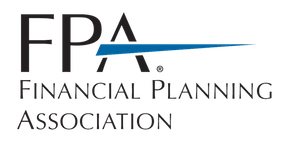There’s an old saying floating around in the ether: “If you don’t have a plan, you plan to fail.” Nobody knows who said it first, but it hits harder than a morning alarm on Monday. Planning is essential in nearly every aspect of life—planning allows us to prepare to achieve goals efficiently and effectively. But what happens when, even if we have a plan, sometimes things still don’t go according to plan? In this post, we discuss what a financial plan is not, what a financial plan is, and who needs one.
What a Financial Plan Is Not
Often, an investment strategy can be confused with a financial plan, perhaps because investing might be perceived as more exciting than planning. While investing generally can be a good thing, it is not a substitute for a financial plan and can potentially be detrimental to someone’s financial situation when managed inappropriately.
For example, suppose someone has a surplus cashflow of $2,000 a month and no cash except $3,000 in their checking account. They decide to boost their 401k and IRA contributions and put that excess cashflow to work. The strategy works great for a while and their retirement portfolio grows substantially. However, one day, that person’s air conditioning unit goes out in the middle of the summer. What do you think will happen next?
They likely are forced to either use debt to fund this expense and incur interest, or draw from their retirement funds and incur tax plus penalties. What if shortly after that, the individual’s car breaks down and it’s going to cost a couple thousand dollars to fix? And, what if then the individual suffers an accident and can’t work for a period of time, or is even laid off?
This example illustrates the importance of having your bases covered prior to beginning investing. In other words, we first need to make sure we are properly managing risk by:
- Identifying the risks that exist in our lives. For example: liability, health, disability, life, long-term care.
- Determining how we want to treat that risk, whether it is to avoid that risk at all costs, self-fund that risk, or pay someone to bear that risk.
This is done by having a proper emergency fund of at least 3 to 6 months of expenses, and evaluating how much property and casualty insurance we need on our home and autos, as well as the appropriate amount of disability and life insurance needed. In addition, if you’re in your 50s, it’s important to start thinking about the possibility of needing long-term care.
Building a financial plan around risk gives us the opportunity to be prepared for things to go awry, and then focus the remainder of our resources on saving.
What a Financial Plan Is
At its core, a financial plan is a guide used to help you achieve short- and long-term financial goals. Financial plans acknowledge and take into account all aspects of a person’s financial life, which generally includes:
Cashflow – Income during working years and/or during retirement, expenses/purchases (houses, vehicles, etc.)
Debt – Credit score, cost of debt, solvency
Insurance – Health, life, disability, property and casualty, long-term care
Estate Planning –
- Effective and efficient transfer of assets
- Guardianship of minor children
- Execution of final wishes
- Execution of wishes during potential incapacity
Investments – Tax efficiency, risk tolerance, ability for risk
Taxes – Income tax, capital gains tax, tax compliance
These are aspects of nearly everyone’s financial life, and they are often intertwined. Your income and your expenses have to do with your solvency. Your solvency influences your credit score, and your credit score influences the cost of your debt if you have any. In the same way, the difference between your income and expenses dictates your ability to save, and your ability to save determines when you can retire and the lifestyle you’ll be able to sustain during retirement. All facets of personal finance are connected and it’s the job of the financial plan to bring them all together in a cohesive and efficient manner to achieve financial goals.
Who Needs a Financial Plan
We feel that everyone needs a financial plan—even children. However, not everyone’s financial plan needs to be elaborate. With time, plans typically become more complex or emphasize certain aspects over others. For example, a young couple’s plan probably focuses on financial goals related to starting a family, like buying a house, having kids, and protecting the income needed to fund the family’s needs, including disability and life insurance.
- On the other hand, a couple in their late 40s and early 50s might already have achieved the goals previously mentioned. Instead, they could be more focused on increasing their income and their savings rate because retirement is quickly approaching, including addressing questions like:
-
- How much should they contribute into 401(k)s and IRAs?
- Should contributions be Roth or pre-tax?
- Should they payoff their mortgage?
- Are they investing appropriately for retirement?
Because life is dynamic and ever-changing, so are financial plans. The frequency at which a financial plan needs to be updated is determined by what is happening in a person’s life. Some of those special circumstances include:
- Change in employment or compensation
- Change in the composition of the family
- Large purchases
- Large windfalls (large bonus, inheritance, etc.)
- Age-related milestones (kids go off to college, eligibility for Social Security, eligibility for Medicare, etc.)
- Change in goals
By being proactive and forward-thinking, you can confidently embrace the journey of financial planning with open arms. Let it be the compass that guides you through life’s financial decisions, big and small, ensuring that each step you take is one closer to achieving your dreams and preparing for your future. Remember, the best time to start planning was yesterday; the next best time is today.









